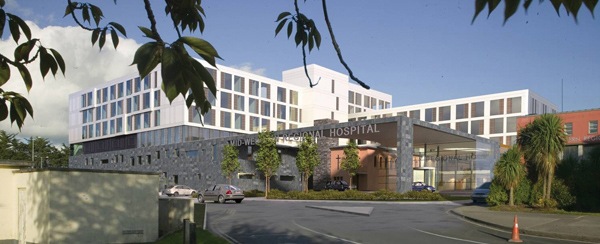Co-locating care
Health Minister Mary Harney promised 1,000 beds would be created through co-location, a scheme where private hospitals would be built on public hospital sites. Four years on, construction has yet to begin. Meadhbh Monahan looks for signs of progress.
Co-location will go ahead despite the economic downturn, according to Health Minister, Mary Harney.
Since the plan was announced in 2005 six sites have secured preferred bidder status but none have begun construction at this stage.
Co-location would see the removal of privately-insured patients from public hospitals, thereby freeing up beds for public patients. It would ease government spending because the hospitals would be paid for by banks and private investors. It is a variation on Northern Ireland’s preference for using private finance initiative (PFI) contracts to build hospitals. A procurement method which secures private funding for public institutions in return for part-privatisation, PFI is also an operational framework which transfers responsibility, but not accountability, for the delivery of public services to private companies.
The Taoiseach told the Dáil in October that “there have been complications with regard to the co-location initiative coming on stream because of the problem in the banking system.”
But Minister Harney insists that the renewed Programme for Government has “re-affirmed” the Government’s commitment to the current co-location programme and that the procurement process which is underway will continue.
Two consortiums, the Beacon Medical Group (BMG) and Synchrony, have signed project agreements for four hospitals. These are: the Beaumont Hospital, Dublin; Cork University Hospital; and the Mid-Western Regional Hospital, Limerick (all BMG); and St James’ Hospital, Dublin (Synchrony).
As of November preferred bidders had also been selected for Waterford Regional and Sligo General Hospitals.
In addition, tenders for two other hospitals in Dublin, Connolly and Tallaght, are being examined by the HSE.
The BMG is responsible for the Beacon Medical Campus in Sandyford, Dublin, along with the University of Pittsburgh Medical Centre which bought a majority stake in the hospital and has a 40 per cent stake in any future co-located hospitals that BMG plans to develop. BMG is headed by Chief Executive Michael Cullen.
Synchrony took the investment holding company Boundary Capital on board after it took a 60 per cent share in the project.
The co-location programme envisages that the private sector will finance and operate private bed capacity and there will be a substantial degree of co-operation and innovation by public and private managements working together at each site.
Opposition parties say that the government should abandon the co-location plan at this stage because people are cancelling their private health insurance policies and the money would be better spent within the public hospital system.
Labour Health Spokeswoman Jan O’Sullivan said: “It makes no sense whatsoever to pursue this co-location plan at a time when the percentage of people with private health insurance is falling dramatically and our existing public hospitals are struggling to cope with the demands being placed upon them.”
Meanwhile, Fine Gael health spokesman Dr James Reilly claimed that the future of the project at St James Hospital “appears dubious”.
“It does not appear to have planning permission and the developer involved has, according to newspaper reports, lost one high-profile backer already and is being bankrolled by a private equity firm with a deteriorating financial position,” he said.
Dr Reilly accuses the Minister of planning “a developer-friendly scheme” in 2005, a time when the budget existed to invest in public beds. He said that co-location is now “comprehensively discredited.”






